#watatsuki no toyohime
Text
three lunar princesses

#touhou#touhou project#watatsuki no toyohime#watatsuki no yorihime#toyohime#yorihime#chang'e#chang'e touhou#rei'sen#rei'sen touhou
128 notes
·
View notes
Text
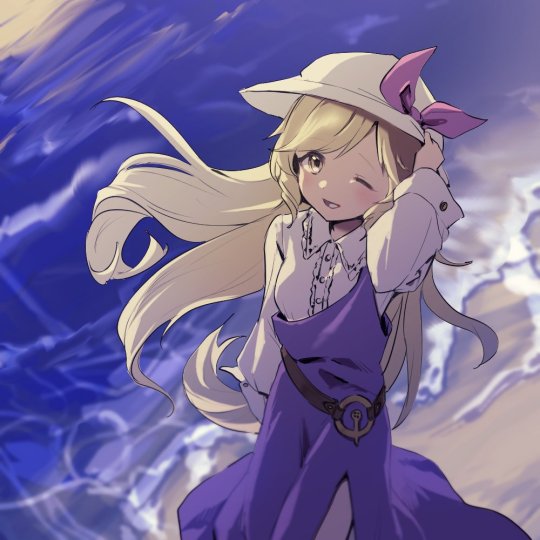
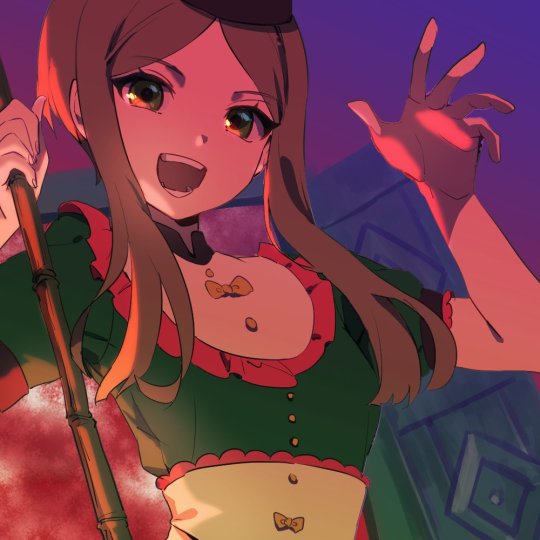

One hour drow
162 notes
·
View notes
Text

What's up doc?
This is a commission I made for @Columbiapiece. Thank you for commissioning me!
#art#chibi#fanart#game#touhou#comic#touhou project#parody#warner bros#reisen#bunny girl#Watatsuki no Toyohime#Watatsuki no Yorihime#bugs bunny
70 notes
·
View notes
Text
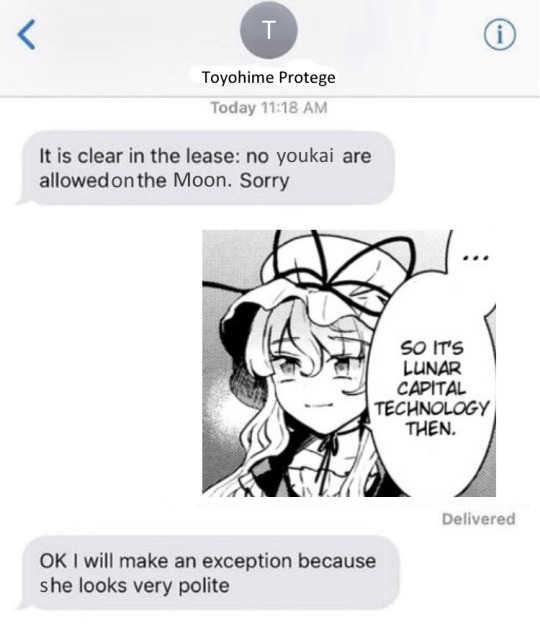
65 notes
·
View notes
Text
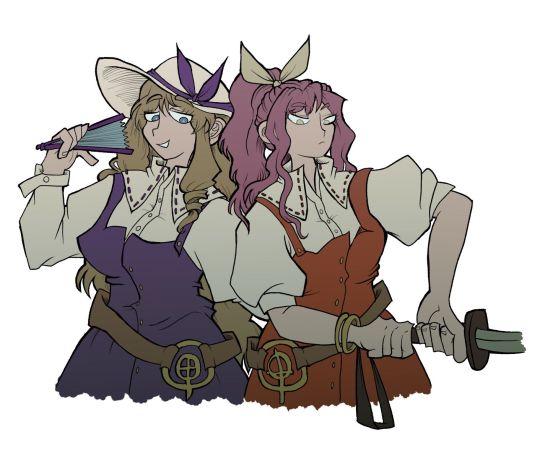
wtttsk
70 notes
·
View notes
Text

dance
37 notes
·
View notes
Text
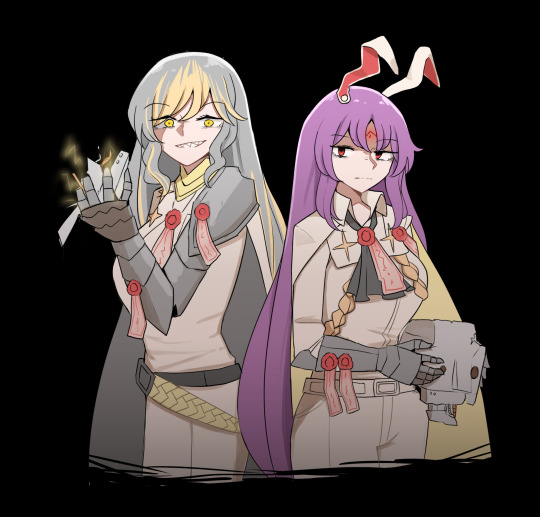

The One who Grips (and shall Grip) crossover
140 notes
·
View notes
Text
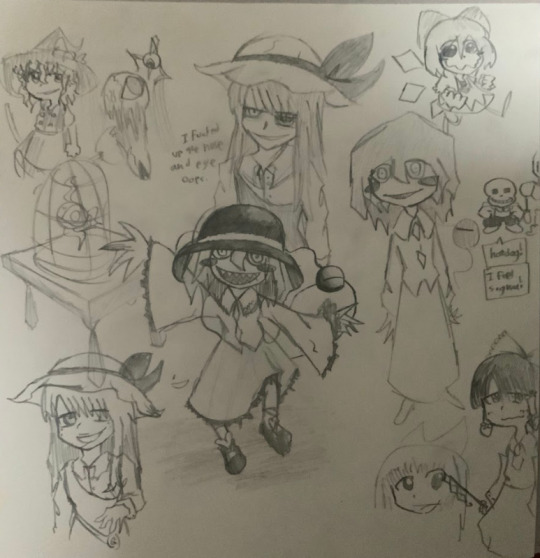
its been like a long ass time since i drew on paper and it remined me how much i abuse ctrl z
#koishi komeiji#touhou#kkhta#touhou fanart#reimu fanart#marisa kirisame#touhou cirno#cirno#watatsuki no toyohime#sketch
29 notes
·
View notes
Text

Moon lady and some swirls
#art#my art#pencil sketch#pencil#sketch#sketchbook#fanart#touhou#touhou project#touhou fanart#watatsuki no toyohime
77 notes
·
View notes
Text

Moon People
20 notes
·
View notes
Text
get rotated.
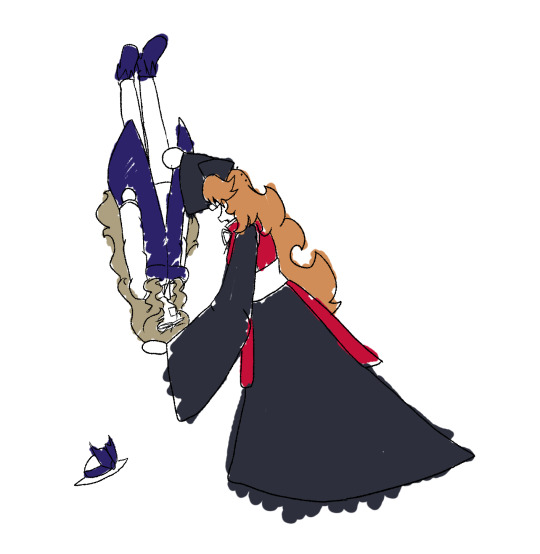
idiot.
121 notes
·
View notes
Text
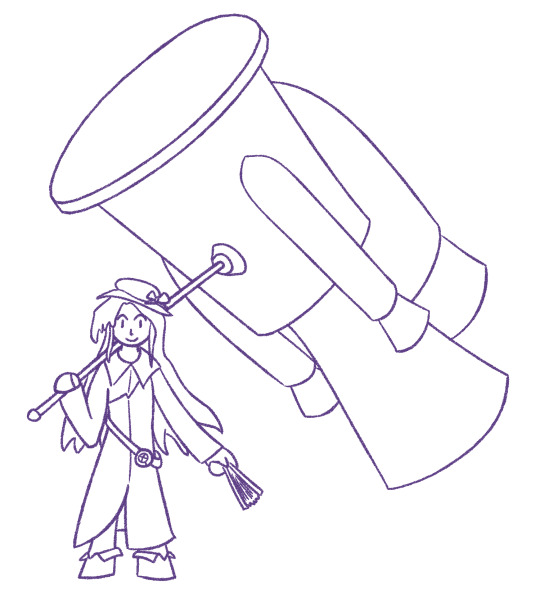
regular touhou #38: Big Hammer Toyohime
#touhou#watatsuki no toyohime#occasional art#non-occasional touhou#someone in a server i'm in mentioned the idea of toyohime having like a tinkaton hammer. so i gave her one. big hammer toyohime#it's kinda meant to resemble a space shuttle with its launching rockets and everything. but i did it without reference so it doesn't really#it DOES ignite and fling her forwards. lunar princess travelling at incredible high speed wielding a very large hunk of metal.#so watch out. otay ?
65 notes
·
View notes
Text
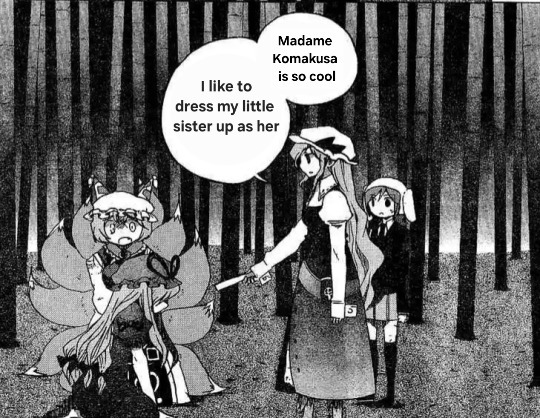
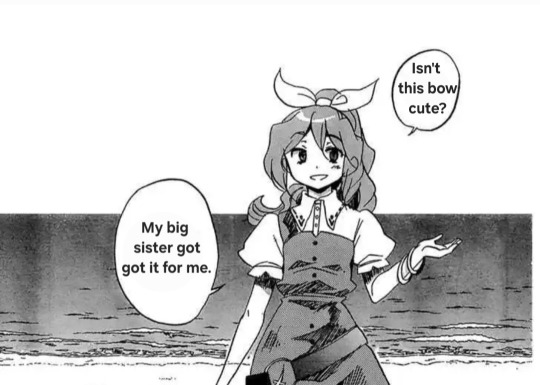
#sannyo komakusa#touhou project#watatsuki no yorihime#watatsuki no toyohime#yukari yakumo#ran yakumo#東方project#You are exactly right Toyohime. Sannyo is super cool.#Real Silent Sinner in Blue dialog
32 notes
·
View notes
Photo

I should draw the Watatsukis more
183 notes
·
View notes
Text
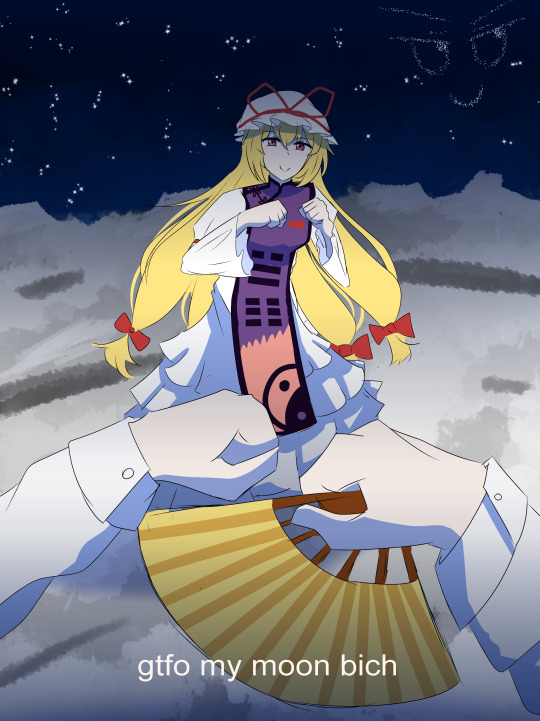
yukari intruder meme
310 notes
·
View notes
Text
Hecatia and the Lunarians
Blame/credit @sukimas for expressing interest in this...
Okay, so, Hecatia gets to talk for a few paragraphs in Alternative Facts in Eastern Utopia about Hell's history, and by implication, her own. Eirin and Toyohime each get a full chapter in Cage in Lunatic Runagate and they convey quite a lot of things about the Lunarian mindset and worldview. One thing that's struck me recently is that, although Hecatia is explicitly anti-Lunarian on a far deeper level than any other character who's gotten dialogue (Yukari's probably equally anti-Lunarian but she's less talkative about why), Hecatia is also positioned as a similar kind of entity to the Lunarians.
Firstly, they both tell origin myths about their associated locations which are straightforwardly contrary to both the familiar mythology and a more secular historical analysis. Hecatia talks about Hell originating not as a place of punishment and rehabilitation, but as a construct by powerful people who were uninterested in living according to conventional virtues.
What Hecatia probably means by Hell here is the Greek Tartaros (or Tartarus), which undergoes a historical transformation from an abyssal realm where defeated godlike powers are imprisoned indefinitely (eg in Hesiod) to a place where mortals and some minor immortals who transgressed against the gods were condemned to ironic torments in the more Classical Greek mythological writings.
But Tartaros is just a primordial place in Greek myths at every point. Like Kaos, or Gaea, or Aether, or Ouranos, it's both a deity and a space, part of the early structure of the universe before there are really personalities. Nobody built it.
Similarly, Toyohime tells a story about how the Lunar Capital was created by the great sage Tsukuyomi and their* desire to avoid the spread of impurity and death, and also tells a story identifying the Lunar Capital with the undersea Dragon Palace of Japanese folklore. And this is, in its way, consistent both with the textual tradition in which Tsukuyomi is the killer of the food goddess Ukemochi out of disgust with how she vomits food out, and also the fact that Tsukuyomi is a god without much cultic presence, a figure mostly in primordial mythology, unlike their very active siblings Amaterasu and Susanoo. (There are a couple shrines to them, especially as subordinate parts of large Amaterasu shrine complexes. But not many.)
But it's also not really derived from the mythology directly, and it's not quite drawing upon a clear historical transformation- Tsukuyomi-no-Mikoto seems to have always been primarily a literary figure, distant from practical religion.
Now, the Lunarians reject divinity, in the sense of rejecting the obligation to humans that being a kami in a shrine requires, the interactions and subordination to ritual. Hecatia also describes her original Hell as a place where people reject rules they don't like. So we also have this interesting convergence- these two sets of figures who assert a separate history of their own existence, disconnected from what ordinary humans thought then or now, also share in this kind of symbolic disconnect.
So one way of looking at their alternate histories is to treat them as assertions about the world and the universe more than statements of plain fact, which is definitely workable within the fictional context as well- Hecatia is manipulating Aya in her interview, Toyohime doesn't know the full details of the "history of the moon" and is to an extent repeating what she's been told. There's been quite a lot of good meta about those worldviews you can go read.
But another similarity that falls out of this analysis is that both sides of this pair exist in a state of relative freedom within Touhou cosmology, because the Lunarians are figures of literary myths who don't have to be reconciled with their behavior at the shrine, and Hekate is a famously confusing and difficult figure within the Greek and later Greco-Roman mythological complex- Hesiod presents her as a kind of universal helpful figure, as does the Homeric Hymn to Demeter, but other sources from early periods present her as sketchy or hellish. Still later, she would become treated as a nearly-omnipotent goddess in some of the Greek Magical Papyri- but what we know about her cult and position today is limited and even contemporary writers seem confused.
Hecatia is thus free in the cracks, because human imagination and human history have left her with great latitude, just like the objects of her distaste, the Lunarians. I suppose in a way it's the contempt bred of familiarity- you have all this freedom and this is how you use it? etc.
*Tsukuyomi's gender is unclear, according to Wikipedia in English, even given early poetic sources that refer to them in masculine terms. So I suspect there's some real uncertainty going on in the scholarship too.
36 notes
·
View notes